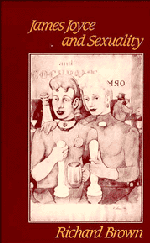Summary
At one time it was hardly doubted that sexual matters in Joyce's fiction should be the object of critical attention. Many of the early reviewers based their reaction to Joyce on this aspect of his work, though they did not by any means approve of it and they rarely had a clear distinction in their minds between Joyce's treatment of sexuality and what they considered to be his exaggerated interest in all the workings of the body. The review of Ulysses from The Sporting Times of 1922 is the best known of these early reactions with its philistine condemnation of Joyce's ‘literature of the latrine’ and his ‘stupid glorification of mere filth’. Many of the more reflective reviewers also felt the need to discuss what they saw as a rather indiscriminate kind of realism. To many of them, including Shaw, Virginia Woolf, Arnold Bennett, Wells and Rebecca West, his work seemed to dwell on subjects that were unliterary or else literary only in a way which they found it difficult to approve.
Joyce's defenders must also have recognized this quality of his work but, rather than attempt to argue that the treatment of sexuality was of the utmost importance to Joyce's creativity and at the heart of what his fiction might be trying to investigate, they chose to change the focus of the debate to questions of literary form and to analogies with past literary greatness. Stuart Gilbert claimed that readers had taken an interest in sexual matters ‘disproportionate, as it appears to me, to their real importance’.
- Type
- Chapter
- Information
- James Joyce and Sexuality , pp. 1 - 11Publisher: Cambridge University PressPrint publication year: 1985



